My memories of my Grandfather Wallace, on my father’s side, are faint as he died when I was very young. I do have one memory of him with my grandmother and parents in their kitchen but that’s about it.
He became a successful business man, publisher of a trade magazine in the building trade, American Artisan, which is long gone. I expect this photo predates that part of his life. 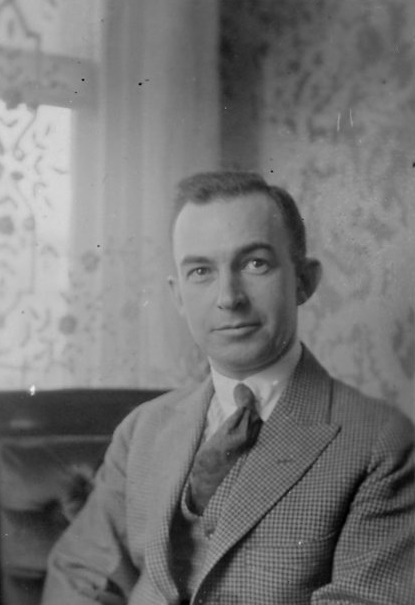 My father did not speak much of his childhood but I do recall hearing that his parents, Wallace (Wally) and my Grandmother, Wilhelmina (Willy) Wilhelm, a good German Girl, ran a pretty tight ship and were stern with their boys, my father and his two brothers.
My father did not speak much of his childhood but I do recall hearing that his parents, Wallace (Wally) and my Grandmother, Wilhelmina (Willy) Wilhelm, a good German Girl, ran a pretty tight ship and were stern with their boys, my father and his two brothers.
My memories of my Grandfather, such as they are, were mostly formed by what I heard after he was gone. I guess that most of my memories were formed by the “things” that he surrounded himself with. The stuff that he left behind. When I was a bit older, I would sneak up to the attic, to gaze longingly at his enormous stash of fishing gear that was stored in a special climate controlled room. Part of the allure for me was that I wasn’t really supposed to be up there in the first place but I did it anyway, and it was, surely, the most amazing place that I had ever been.
The room, tucked away in the corner of the walk-up attic, was lined with all sorts of outdoor gear, everything from winter jackets (find more info), snow shoes and all manner of fishing gear. My Grandfather was a fisherman and a hunter but a fisherman first, and not one who’d “beat the water” with casting gear but a firm believer that the only proper way to catch a fish was with a rod and fly.
And, for proper fishing gear, THE place he shopped was Orvis and Family legend had it that my Grandfather had one of nearly everything that Orvis sold, and I believed it. I was entranced by what I saw in that secret room and imagined what it must have been like for my grandparents to trek deep into the wilderness, wading out in a cold running stream, looking for the big one that I imagined never got away.
Recently, I have been sorting through boxes of old family photos that Brenda and I have taken over the last forty years, and have come upon some real gems, some of which have appeared in recent posts. I am nearing the end of the boxes of photos and today I came upon a small envelope with some remarkable pictures. Tiny black and white photos of my Grandparents taken while they were on several of their legendary wilderness fishing trips in the 1920s and later in the 40s, in Maine and Canada including Newfoundland.
Prior to today’s remarkable find, the only photo that I had of my grandfather, was this one, that I keep on my desk of him dressed as I always imagined he must have been when he was out exploring the wilderness. 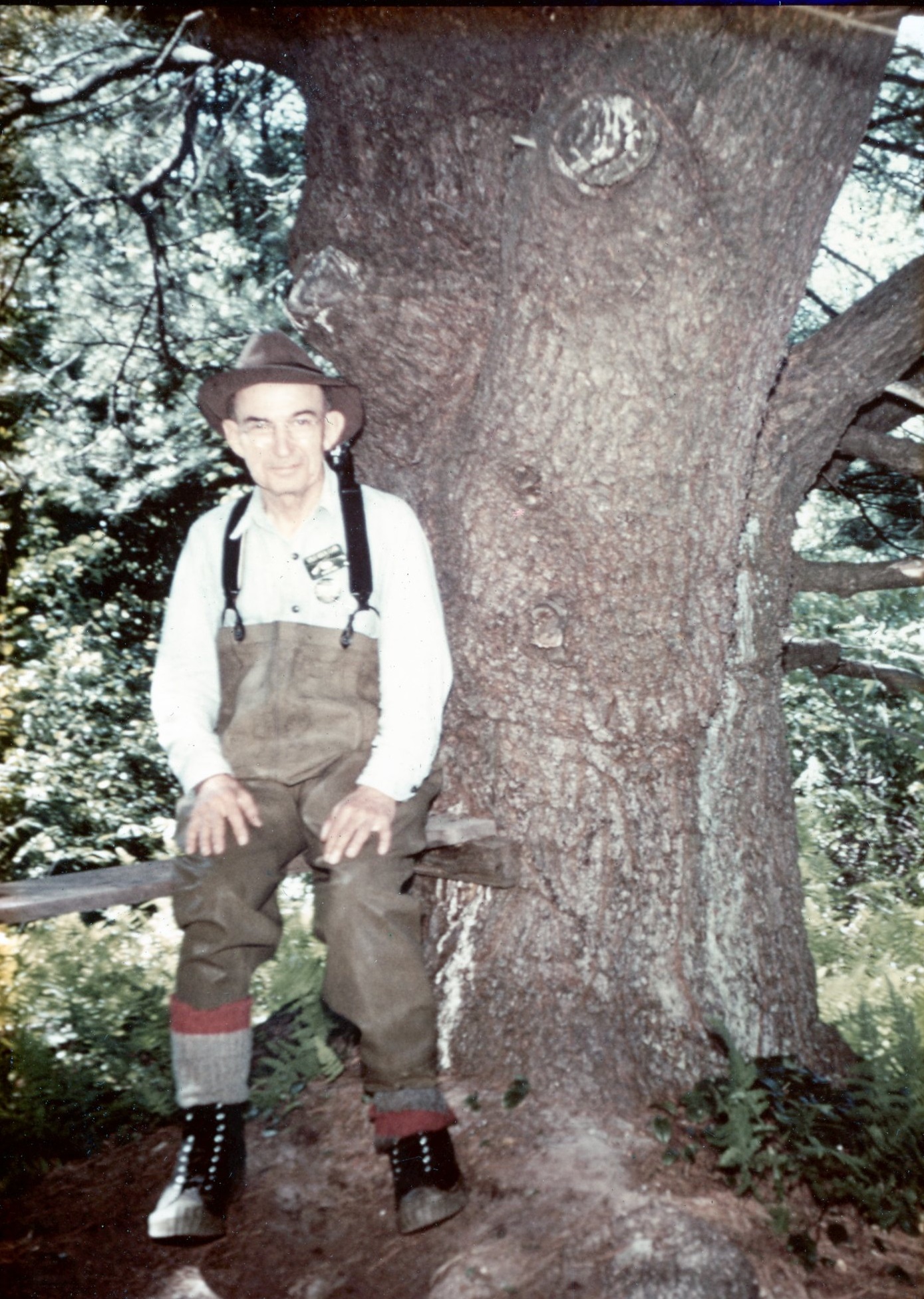 There he is wearing his waders for trout fishing in a river and I can still remember how they smelled when I handled the old rubber in that forbidden place.
There he is wearing his waders for trout fishing in a river and I can still remember how they smelled when I handled the old rubber in that forbidden place.
I also have this photo of me and my late dad fishing on what I believe is a reservoir near our home, at the time, in Fairfield CT. I’m not sure if Dad really enjoyed fishing so perhaps he was just doing his “good daddy” thing. I wish I remembered that day. I am sure it was awesome. 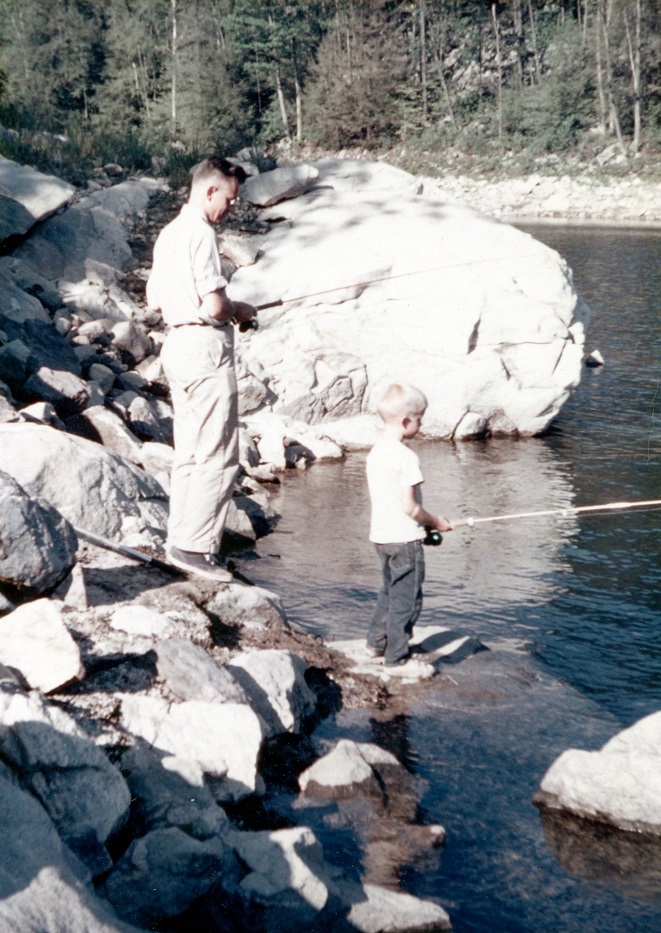 So, back to the travels of my grandparents, Wally and Willy. Over the years I heard bits and pieces of the many trips that they took to Maine and Canada to fish and hunt but mostly to fish.
So, back to the travels of my grandparents, Wally and Willy. Over the years I heard bits and pieces of the many trips that they took to Maine and Canada to fish and hunt but mostly to fish.
I can only imagine what it must have been like to head out into the wild back in the early part of the 20th century and it was surely very primitive by today’s standards. Legend has it that on one of their visits to Newfoundland, my grandmother was confronted by a bull moose that towered over her head. I remember her as being pretty tough so I expect that she stood her ground, no doubt, having been told that to run away was a decidedly bad idea.
They were really on their own, guide or not. No cell phones or GPS transponders with little red “help” buttons to push if you got into trouble back then. Cars were even a fairly new thing and most transportation in the back country, at that time, was certainly by horse. This photo was captioned on the back in neat printing as “Lori Pond Maine”. I couldn’t find it on a map.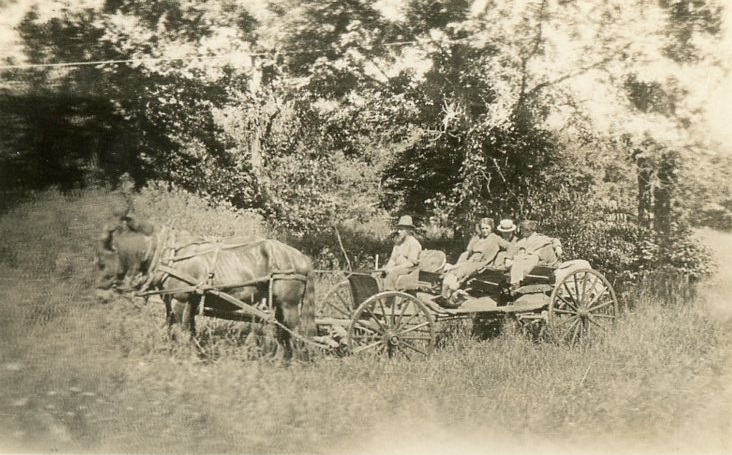 Here they are, fording a stream, clearly in the same area, labeled “Katahadin Maine” which I learned is the highest mountain in the state. Located in the remote center of the state and I can only imagine how tough it was to get there in 1922 when this photo was taken as it was years prior to the interstate highway system.
Here they are, fording a stream, clearly in the same area, labeled “Katahadin Maine” which I learned is the highest mountain in the state. Located in the remote center of the state and I can only imagine how tough it was to get there in 1922 when this photo was taken as it was years prior to the interstate highway system.
Perhaps they took a train from New York or took the long drive up route 1. It’s hard to imagine them making the trip on their own as cars of that era were pretty primitive with running boards and brass headlamps. One way or the other, it must have been a days long journey from their home in Fairfield CT.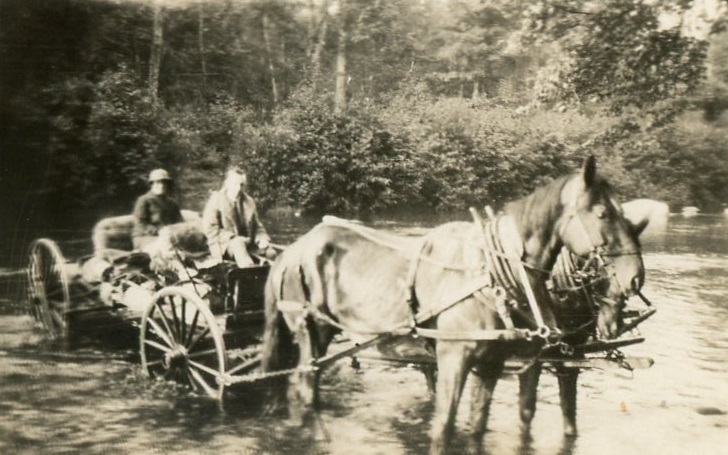 In his later years, I heard that my grandfather flew to fish in the Pacific Northwest to fish for salmon but back in the 1920s this was the sort of plane that was used commercially and I doubt that there were many airports, if any at all, in that part of Maine. Well, this photo isn’t actually a commercial airplane and has nothing to do with my grandparents but I love the image and all that it conjures up. You’ll get the point that air travel wasn’t quite the same then as today.
In his later years, I heard that my grandfather flew to fish in the Pacific Northwest to fish for salmon but back in the 1920s this was the sort of plane that was used commercially and I doubt that there were many airports, if any at all, in that part of Maine. Well, this photo isn’t actually a commercial airplane and has nothing to do with my grandparents but I love the image and all that it conjures up. You’ll get the point that air travel wasn’t quite the same then as today. 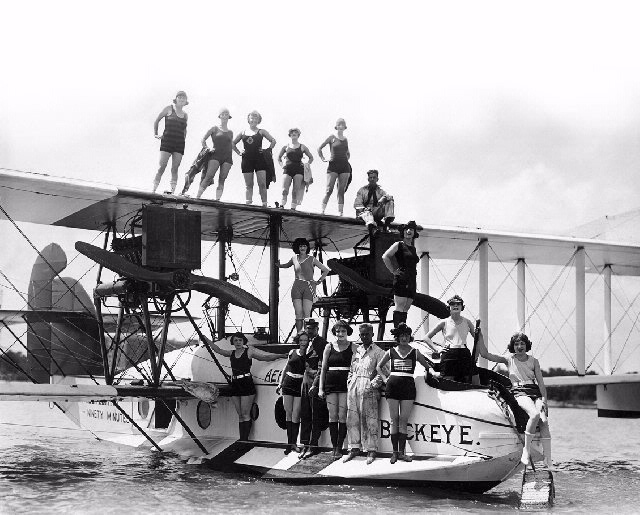 Not sure what this photo is all about but it’s labeled as “Maine Woods 1922”. Yep, looks like the woods. I wonder if they ever visited when there was snow on the ground. Perhaps the trails were to rough for wheels so this was the only way to carry their camping gear.
Not sure what this photo is all about but it’s labeled as “Maine Woods 1922”. Yep, looks like the woods. I wonder if they ever visited when there was snow on the ground. Perhaps the trails were to rough for wheels so this was the only way to carry their camping gear. 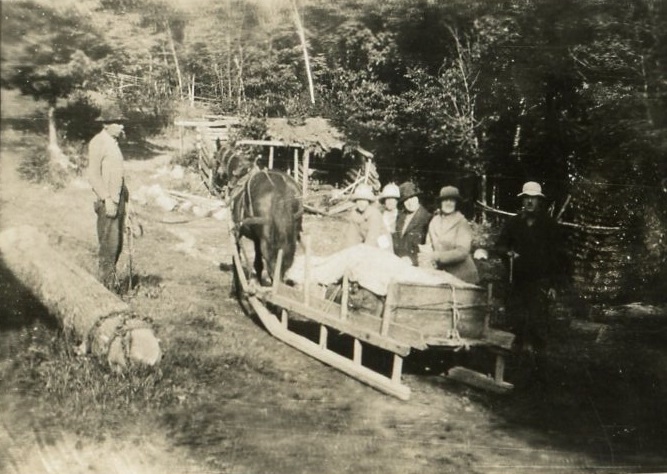 Roughing it or not, this photo, taken that same year, shows grandfather looking right at home in the backwoods, especially for a city guy. Adventuring of the sort that they did was probably not all that common at that time.
Roughing it or not, this photo, taken that same year, shows grandfather looking right at home in the backwoods, especially for a city guy. Adventuring of the sort that they did was probably not all that common at that time. 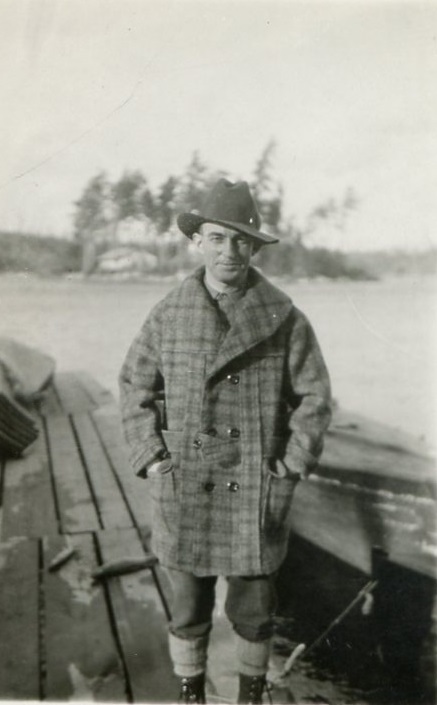 My grandmother was no shrinking violet. And here she is “packing”. Notice the sidearm. I wonder if that was before or after her encounter with that moose? Of course, as you’d expect for a proper rusticator, a skirt, appropriately below the knee, of course.
My grandmother was no shrinking violet. And here she is “packing”. Notice the sidearm. I wonder if that was before or after her encounter with that moose? Of course, as you’d expect for a proper rusticator, a skirt, appropriately below the knee, of course. 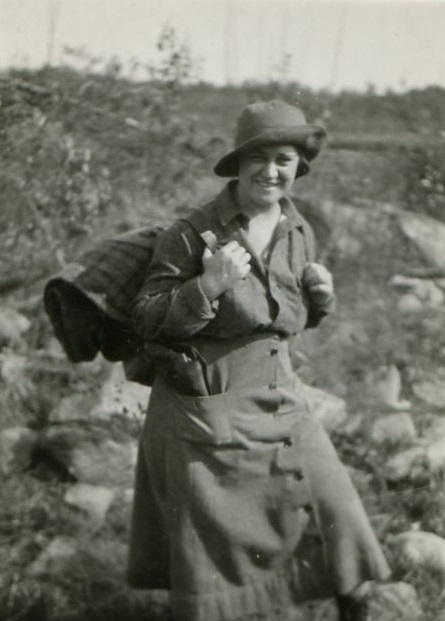 Wally packed too. It’s photo was taken some years later, in 1937, again in Newfoundland. And, of course, complete with his ever present cigarette.
Wally packed too. It’s photo was taken some years later, in 1937, again in Newfoundland. And, of course, complete with his ever present cigarette. 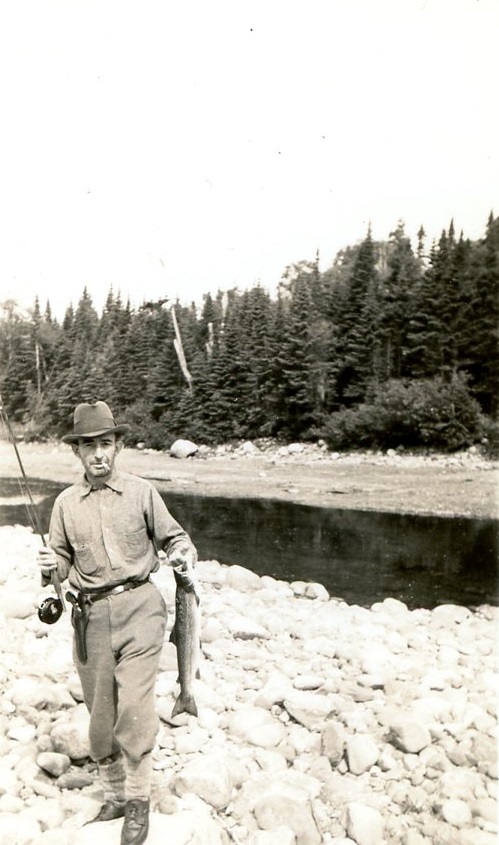 And out by the cookhouse in Newfoundland in 1940. I would imagine that they flew there as I can’t imagine having the time to get there by train, car or ship.
And out by the cookhouse in Newfoundland in 1940. I would imagine that they flew there as I can’t imagine having the time to get there by train, car or ship. 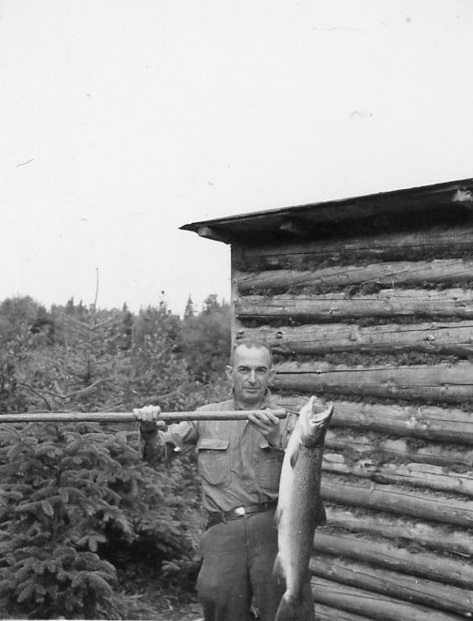 My grandmother did plenty of fishing in those years too. I remember her as pretty stern but with a great smile. When she was much older and saw me she’d say in a high pitched voice with a jaunty lilt, “little lamb, little lamb, little lamb chop, chop” and poke me in the ribs. I loved that.
My grandmother did plenty of fishing in those years too. I remember her as pretty stern but with a great smile. When she was much older and saw me she’d say in a high pitched voice with a jaunty lilt, “little lamb, little lamb, little lamb chop, chop” and poke me in the ribs. I loved that. 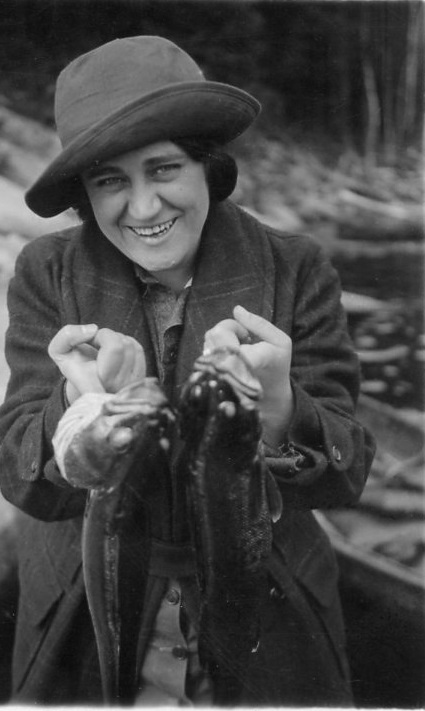 And, our Willy could handle a gun as well as a rod and reel. Love the feather in her hat.
And, our Willy could handle a gun as well as a rod and reel. Love the feather in her hat. 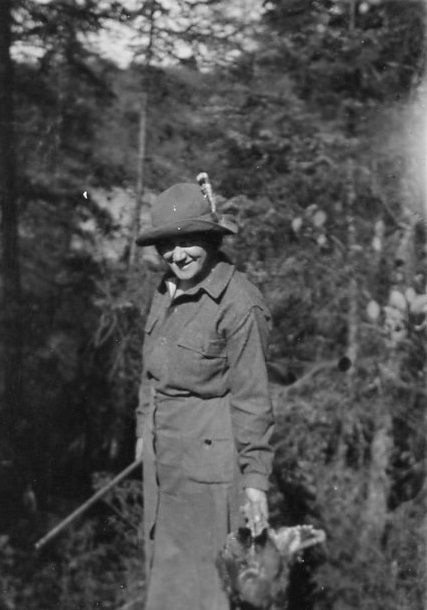 Looks like lunchtime with their guide. In those areas I doubt it was a good idea to go it alone. And, I expect that there was plenty of critters, large and small, that “went bump in the night” to keep an eye out for.
Looks like lunchtime with their guide. In those areas I doubt it was a good idea to go it alone. And, I expect that there was plenty of critters, large and small, that “went bump in the night” to keep an eye out for. 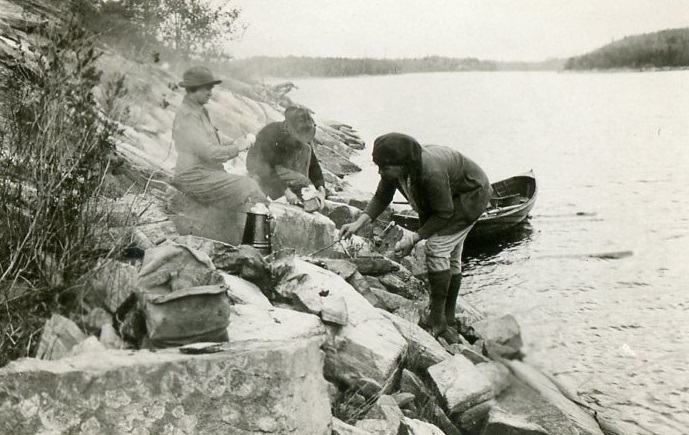 I’d love to know the story behind this moment.
I’d love to know the story behind this moment. 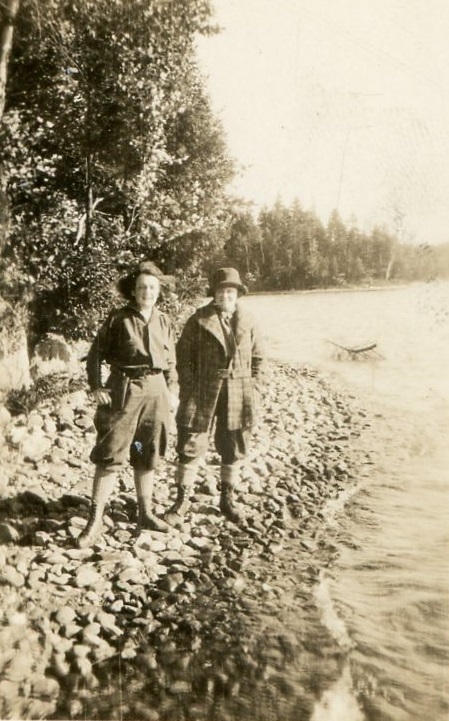 Willy could fish with the best of them it seems although she never spoke of it with me.
Willy could fish with the best of them it seems although she never spoke of it with me. 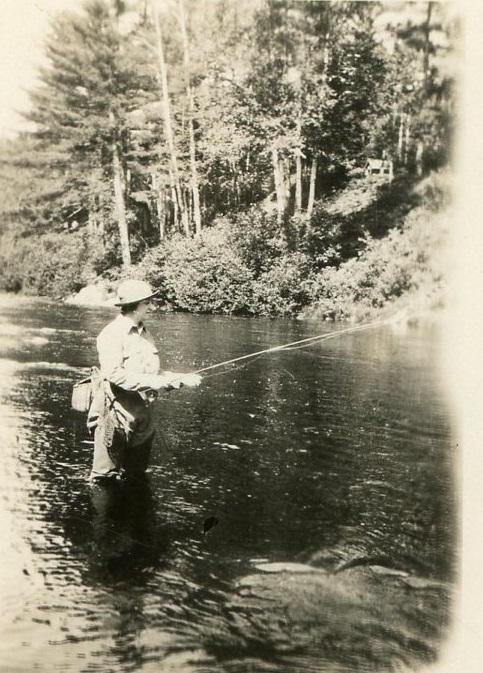 This photo, labeled only as “Maine” appears to be some sort of ferry. Imagine being out in a remote area and wearing a tie and hat these days? Heck, I even get comments at our yacht club when I show up in a bow tie.
This photo, labeled only as “Maine” appears to be some sort of ferry. Imagine being out in a remote area and wearing a tie and hat these days? Heck, I even get comments at our yacht club when I show up in a bow tie. 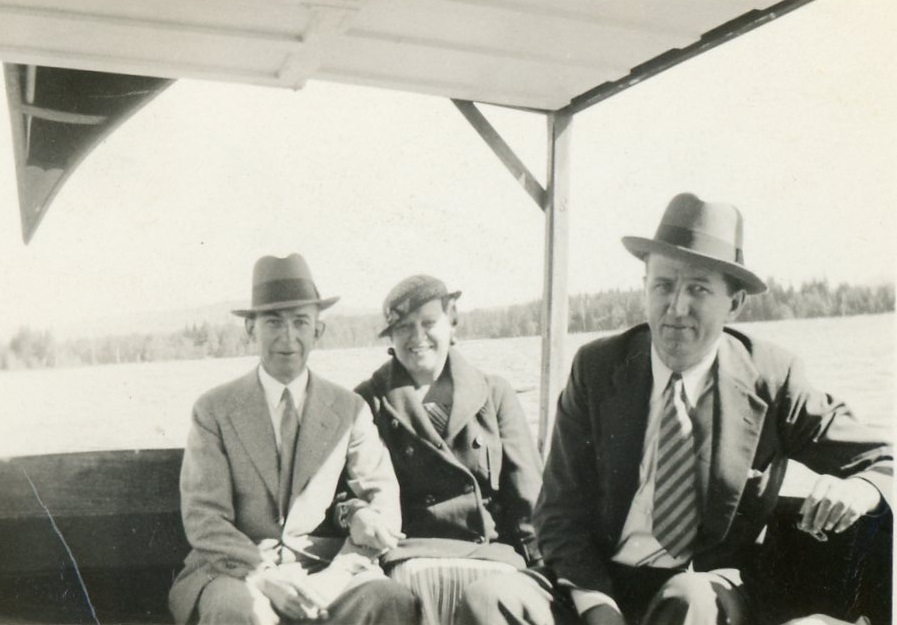 This photo carried an interesting caption on the back, “Dashing Youth, Wrecked City, Canada”. I tried but couldn’t find any reference to such an event in the 20s when I guess the photo was taken.
This photo carried an interesting caption on the back, “Dashing Youth, Wrecked City, Canada”. I tried but couldn’t find any reference to such an event in the 20s when I guess the photo was taken. 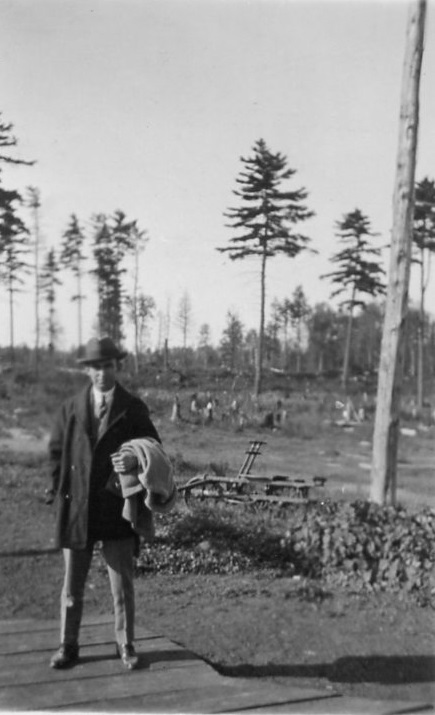 Along the way they did the tourist thing. This was taken along the Mohawk Trail in western MA. The name comes from it’s origins as a trade route for native Americans.
Along the way they did the tourist thing. This was taken along the Mohawk Trail in western MA. The name comes from it’s origins as a trade route for native Americans. 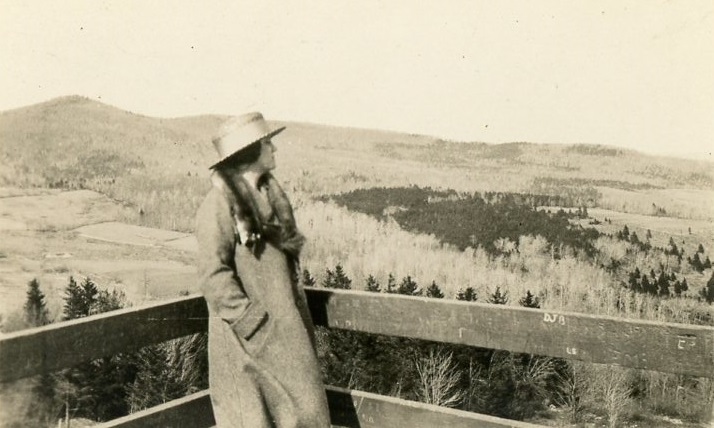 Some of the photos show my grandfather in what looks like really remote areas, like this one on a rocky riverbank, also from the early 20s. I guess that is an Atlantic Salmon. Come to think of it, all the photos look pretty remote.
Some of the photos show my grandfather in what looks like really remote areas, like this one on a rocky riverbank, also from the early 20s. I guess that is an Atlantic Salmon. Come to think of it, all the photos look pretty remote. 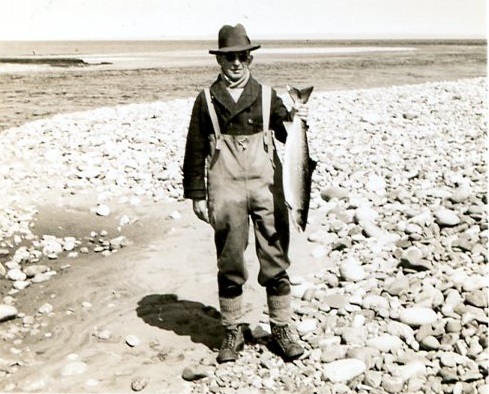 Legend has it that in his later years he had a standing order from a guide in the Pacific Northwest to contact him when the salmon were running and he’d hop on a plane and fly out. In those days that was a very long way as planes didn’t have nearly the range of today’s jets and had to stop every few hundred miles for fuel as they made their way from coast to coast, across the continent.
Legend has it that in his later years he had a standing order from a guide in the Pacific Northwest to contact him when the salmon were running and he’d hop on a plane and fly out. In those days that was a very long way as planes didn’t have nearly the range of today’s jets and had to stop every few hundred miles for fuel as they made their way from coast to coast, across the continent.
I never knew much about my grandfather and although my grandmother was with us until after Brenda and I were married, I still don’t know much about their earlier years. However, their memory lives on, if perhaps more in my imagination, as I conjure up the adventures that they must have had as they fished and hunted in the wilderness, areas that seem impossibly remote even by by today’s adventure travel standards.
I expect that it was the allure of fishing pristine streams and rivers and the promise of catching that big one, that drew my grandfather to the remote north country.
And he, I expect, like me so many years later, was surely drawn to all the wonderful fishing gear, as he dreamed of the promise of what he’d catch and the big ones that, it seems, didn’t get a way. Particularly the lures that he said, I am told, were designed to “catch more fisherman than fish”. In his case, I expect that it was the other way around.
I wish I’d been there with him. Now, that would have been awesome. And even though I wasn’t, discovering these photos has brought us just a bit closer after all these years.

3 responses to “To the ones that didn’t get away.”